Are greens powders a waste of money? 3 nutritionists reveal the truth behind this popular supplement
Greens powders are everywhere right now but are they actually worth the subscription and costly price tag? We speak to three nutritionists to reveal what you need to know
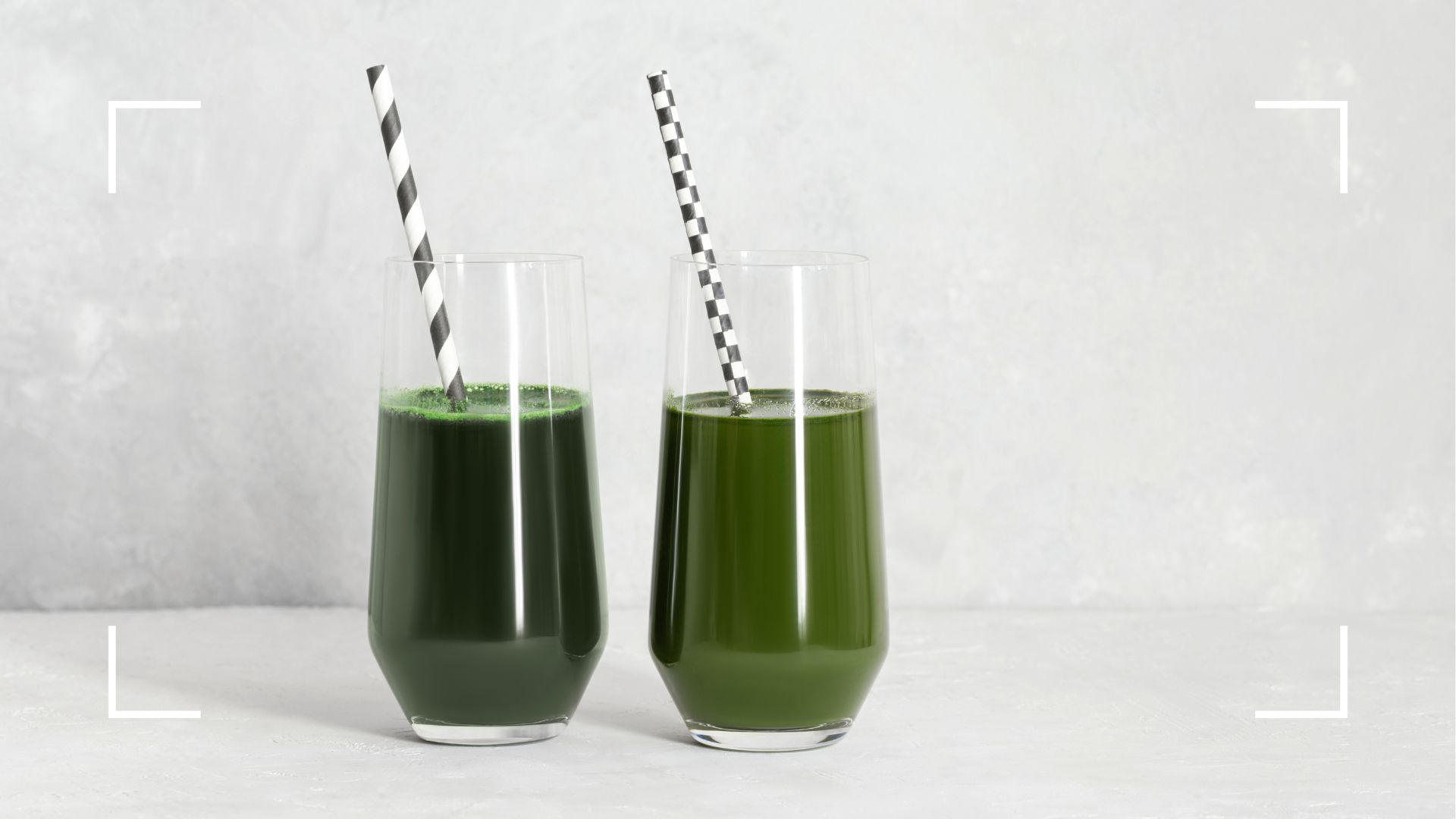

Are greens powders a waste of money? If you've been scrolling on social media lately and come across these dark green, vegetal mixtures and the influencers who promote them, it's likely a question you're asking.
You may remember greens powders from the bottom shelf of your local health food store, but they've gone through a rebrand in recent years. Now, they are marketed as one of the best gut-healthy foods, the key to keeping colds at bay and energy levels strong, and the way to get all the vitamins and minerals you'd otherwise miss out on.
"They are usually dehydrated fruits and vegetables with added vitamins and minerals. They are advertised as quick, convenient, all-in-one solutions to give you everything you could need in one sachet or scoop mixed with water," says nutritionist Charlotte Hunter, who works with the menopause platform Issviva. "They're also usually costly, and unlike individual nutrients, it isn't easy to prove the efficacy of these proprietary blends."
But are greens powders a waste of money? Are they worth it? With every nutrition brand from Free Soul to Huel launching their versions of the product in the last few years, this is what you need to know.
What are greens powders?
Greens powders are supplements packed full of vitamins and minerals, macronutrients, and other compounds designed to have a positive effect on our health. They are often made up of several different fruits, vegetables, and algae mainly, which offer a deep green colour and strong vegetal flavour when mixed with water.
In recent years, brands have collaborated with entrepreneurs, wellness influencers, and former athletes to bring these green mixtures into the mainstream health conversation and everyone from small nutrition companies to those worth over $1 billion have jumped on board.
Some of the bestsellers include FS-Greens (by FreeSoul), AG-1 by Athletic Greens, Rheal Clean Greens, and own-brand options by the likes of Huel, MyProtein, Bulk, and WildNutrition. Most of these, and the hundreds of other similar products, claim to offer several health benefits - including reduced bloating, improved energy, endurance, immune health, circulation, and even better-regulated hormones.
Sign up to our free daily email for the latest royal and entertainment news, interesting opinion, expert advice on styling and beauty trends, and no-nonsense guides to the health and wellness questions you want answered.
Naturally, as with any other health product, some rave about greens powders and others dismiss them as nothing more than good examples of excellent marketing. But what do the experts think?
Positives of greens powders
It's an option for those who struggle to get enough nutrients in their diet
"Greens powders can be particularly beneficial for those living busy, on-the-go lives who struggle to get enough nutrients in their diet," says Eli Brecher, a nutritionist specialising in gut health.
Just like how even the best protein powder isn't a catch-all alternative for high-protein foods, greens powders aren't designed to be the alternative to foods rich in vitamins, minerals, and other essential daily nutrients. Many brands only claim to be a supplement to fruits, vegetables and whole foods, rather than an alternative.
"A greens supplement may offer a simple way to cram in a boost of vitamins, minerals and antioxidants, they should certainly not be considered a replacement for eating your 5-a-day," says Brecher.
As well as anyone who struggles to get in enough nutrient-food during the day, these powders may be beneficial for those constantly on the move - those with a packed work schedule who may miss regular mealtimes, those on holiday, camping, or travelling, for instance - as they do contain levels of important vitamins and minerals.

Eli Brecher is a Registered Associate Nutritionist (ANutr) specialising in gut health, with a first-class degree in nutrition. She offers 1-1 nutrition consultations to individuals in her Harley Street clinic and online, works with brands and corporate companies, and shares daily recipes and nutrition tips on Instagram
Some small studies show promise for greens powders
The main problem with greens powders is that there's simply not enough independent, third-party research. Some small, independent studies have shown promise though.
For example, in a study by the University of Toronto, researchers found that a mixture called greens+ may play a positive role in reducing the risk of chronic diseases related to oxidative stress (which includes Alzheimer's) thanks to its antioxidant properties. However, as noted, these studies only tend to be small. There were only 10 participants in this study and they were examined for a month.
Some ingredients may boost your energy levels
One of the popular ingredients in greens powders is green tea extract. These powders may indeed boost your energy levels as green tea contains caffeine.
In another study by the University of Toronto, researchers found that participants who took one tablespoon of unnamed greens powder (10g) with green tea extract reported higher energy levels over three months than those in the placebo group.
This may be a good choice for those sensitive to caffeine, looking for healthy alternatives to coffee, or looking to quit caffeine in menopause. However, it's worth checking the label. Many greens powders offer a green tea extract but it's so minimal that the caffeine content is almost non-existent - 2 to 3mg of caffeine per serving, in contrast to the 30 to 50mg offered by a standard cup of green tea.
B vitamins are another common ingredient in greens powders and, thanks to the role these play in energy production, these may also contribute to a productive day. However, more research on other types of greens powder without green tea extract would be needed to make a solid conclusion.
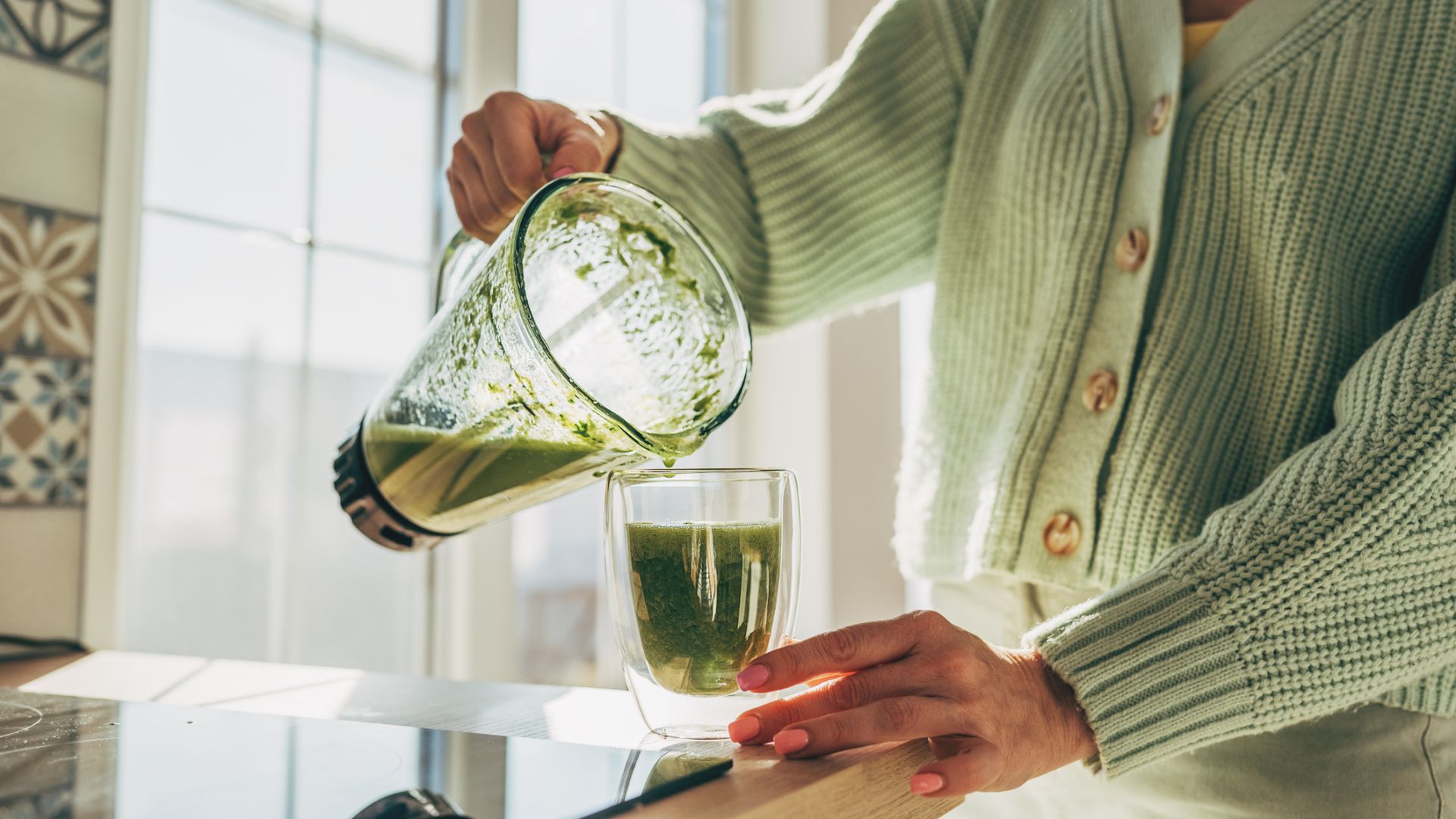
Greens powders can be simply combined with water or included in a smoothie, protein shake, or other food.
Negatives of greens powders
Many greens powders include artificial flavours and sweeteners
That being said, if you're considering a greens powder, it's important to take a long hard look at the ingredients. Sugars and added sweeteners (stevia rather than aspartame) are often included in the form of flavourings in many greens powders to remove some of that odd (and often unpleasant) algae and green vegetable-induced flavour.
"Depending on the brand, some products are loaded with sweeteners and bulking agents which are not beneficial for supporting optimal gut health," says nutritionist Jenna Hope.

Registered nutritionist and author Jenna Hope has a Bachelors and Masters degree in Nutrition. Jenna is the founder of Nutrition Consultancy and Clinic, Jenna Hope Nutrition. She works closely with individuals, brands, companies and the media to help them interpret the science in order to implement smarter strategies for nutrition and support health and wellbeing for the long term.
The evidence behind greens powders is a little sketchy
While several studies from various institutions will tell you that vitamin C and zinc can help support the immune system, for example, these studies aren't specifically looking at formulated greens powders. They may be looking at individual foods rich in vitamin C or other supplements, so they can't be used by default to suggest that greens powders that contain these nutrients offer the same benefits.
Much of the research around these products has also been funded or entirely conducted by the companies selling the products, and often without a placebo group, making them biased.
"Many powders are touted as a magic wand for everything from lagging energy levels and low immunity to hormone balance and menopause symptoms," says Hunter. "Yet many of these claims are unfounded and not backed up by robust research."
Charlotte Hunter is a certified nutritionist specialising in women's health. She works with the menopause platform Issviva.
You are not 'detoxifying' your body
Many green powders claim to alkalise the blood to reduce inflammation and promote detoxification. However, this isn't as necessary as some brands make it out to be on the back of the packet.
"This makes no sense," says Hunter. "The human body is brilliant at homeostatically controlling many things, including the balance of pH. If your pH were to fall outside its tightly regulated range, it is simple - you would die. We can certainly support our body's natural ability to detoxify via a healthy and balanced diet, but I am not convinced by the claims of these products to create alkaline balance."
You may not need them
Nobody needs a greens powder - and the companies that sell them aren't claiming they are essential for your health - but some people really won't need one, suggests Hope. "The irony is that the majority of people conscious enough to consume a greens powder are likely already consuming a diverse and nutritious diet, meaning they’re less likely to ‘need’ a supplement," she says.
Equally, they are not suitable for everyone and greens powders are not necessarily one of the easy ways to improve your gut health. "Many green powders include prebiotics, probiotics, and digestive enzymes," says Hunter. "Whilst probiotics are an exciting proposition and a growing area of research, there is still uncertainty over their impact on our gut health. Everyone has a unique microbiome with their own bacterial blueprint, so what might be right for one person could cause significant issues for another."
They are expensive
Greens powders vary hugely in price, with premium options sitting close to £100 and most coming in around £50 to £20 for a 3-day supply. Needless to say, any convenience offered by greens powder comes at a high cost.
"Do your maths before you get tied into a subscription and end up with a cupboard of unused products," says Hunter. "Use discount codes judiciously and always try the product for at least one month before committing. Also, go with well-known brands to avoid poor-quality ingredients."
Are greens powders a waste of money?
There is no doubt that greens powders can be beneficial. They are an easy way to get a cluster of vitamins, minerals, and other important nutrients into your body - but these powders are not essential for maintaining a healthy diet. There is also limited independent evidence to suggest that they truly deliver all the health benefits reported on the side of the packet.
However, as everybody is different, everybody will respond differently to the supplementation of various vitamins and minerals. So, whether greens powders are worth the money comes down to individual lifestyle and personal preference.
Nutritionist Jenna Hope puts it best when she says: "If you find taking a greens powder in the morning puts you in a ‘healthier headspace’ and encourages you to engage in other healthy behaviours then there’s little harm to them. However, they are definitely not essential for health. In reality, consuming a healthy balanced diet with plenty of plant foods is a more affordable way of achieving a diverse intake of micronutrients."
Nutritionist Eli Brecher agrees. "I encourage my clients to look to real, whole foods to get all the nutrients they need. Certain vitamins, such as vitamin C, are best taken in food form to maximise absorption, and foods such as fruit, vegetables, nuts and beans naturally contain fibre, which feeds our gut microbiome and can help us get more fibre in our diet."
Buy a greens powder if: You consistently struggle to get all the vitamins and minerals you need every day from the food you eat and would struggle to make significant dietary changes to improve this.
Avoid greens powders if: You can get all the vitamins and minerals you need from the food you eat without an issue. As some ingredients in greens powders can interfere with certain medications, always read the label and speak to your doctor if you're unsure.
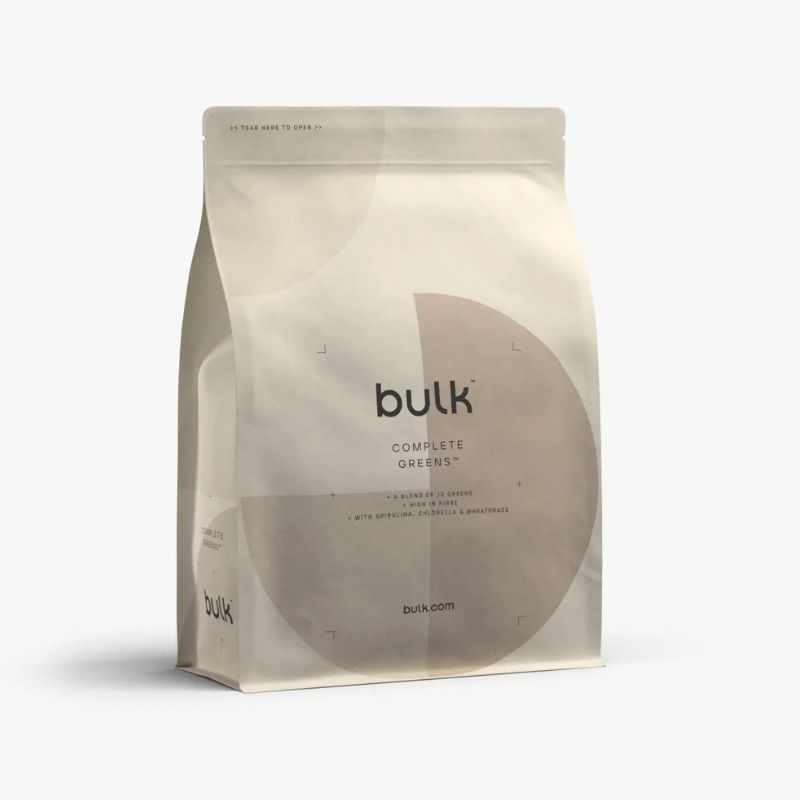
Bulk's Complete Greens is a simple blend of eight greens (spirulina, chlorella, broccoli, pumpkin protein, spinach, alfalfa, moringa and kale) in vibrant green powder. It's high in fibre, low in saturated fat, like other greens powders, and verified buyer reviews say it mixes well with a taste you get used to.
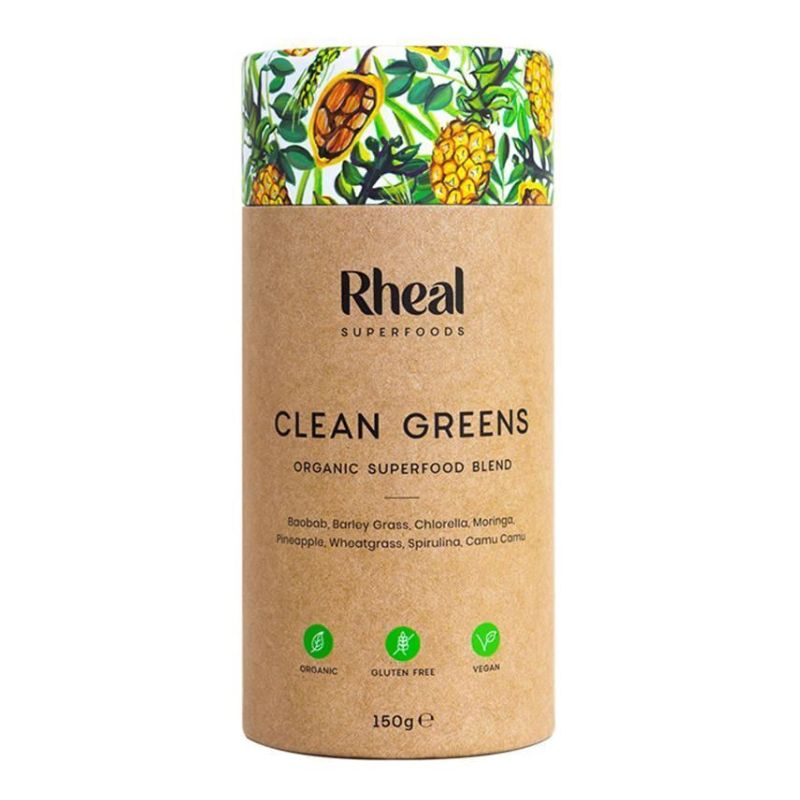
Rheal Superfoods Clean Greens contains a blend of wheatgrass, barley grass, spirulina, moringa and chlorella (antioxidant-rich ingredients), along with vitamin C and other plant-based food extracts. It's well-reviewed for its "earthy" taste and many verified purchasers say it's helped to improve their energy levels over a few weeks.
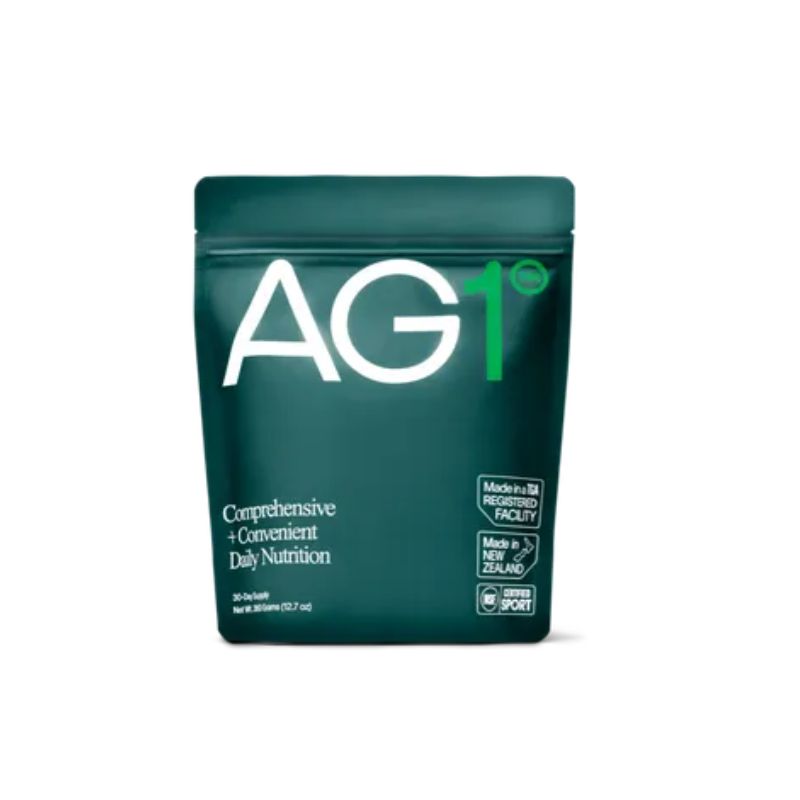
Athletic Greens (AG1) is one of the companies that kickstarted the greens powder trend. At almost £80, it's certainly one of the most expensive for 30 servings but it's backed by several athletes, and health experts, and verified reviews say it tastes pleasant and mixes well.
Who will benefit the most from taking greens powders?
As noted, some people may benefit from greens powders more than others. "Those who are most likely to benefit are those who are at risk of nutrient deficiencies from not consuming a diverse diet," she says. "Additionally, those on restrictive diets or vegan diets may also benefit."
Those who do lots of vigorous, high-intensity exercise may also benefit from a greens powder as many contain important electrolytes like potassium, which can help the body rehydrate. Naturally, however, much cheaper electrolyte supplements are also available.
Is it okay to drink greens powders every day?
Yes, always read the label on your chosen brand of greens powder, but many are specifically designed to be consumed every day as a daily supplement to support a healthy diet.
Typically, most people drink their greens powder in the morning as well, as it's believed that this will boost the number of nutrients that make their way to the gut.
Can't decide between greens powder and another type of supplement? Under a doctor's guidance, supplementation via other methods like vitamin tablets and liquids may be better than having a greens powder for getting the nutrients you are actually missing, rather than a little bit of everything.
"Green powders are often guilty of quantity over quality," says Hunter. "There are so many nutrients crammed into the products there's often not enough of anything to have a therapeutic effect. When you scrutinise the labels of many of these products, they contain less than you'd find in a good quality supplement."

Grace Walsh is woman&home's Health Channel Editor, working across the areas of fitness, nutrition, sleep, mental health, relationships, and sex. She is also a qualified fitness instructor. In 2025, she will be taking on her third marathon in Brighton, completing her first ultra marathon, and qualifying as a certified personal trainer and nutrition coach.
A digital journalist with over seven years experience as a writer and editor for UK publications, Grace has covered (almost) everything in the world of health and wellbeing with bylines in Cosmopolitan, Red, The i Paper, GoodtoKnow, and more.